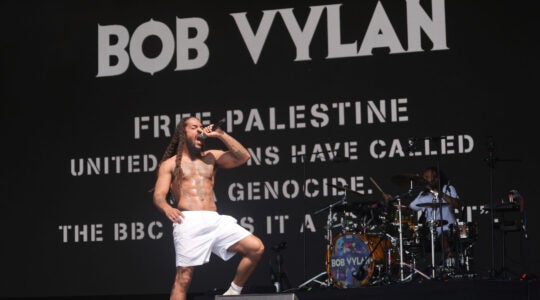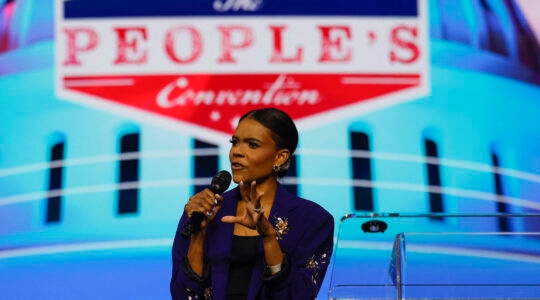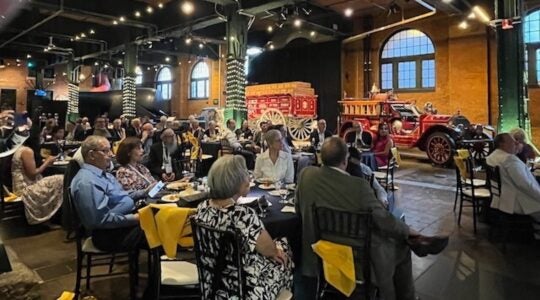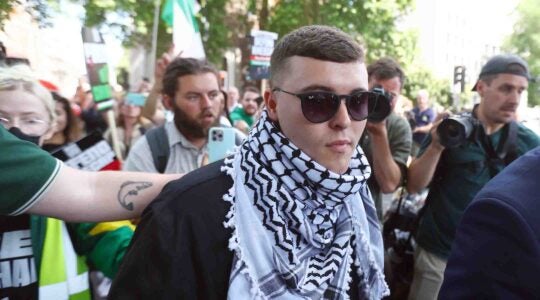- Yesterday, U.N. Secretary-General Ban Ki-Moon called on Israel to freeze all settlement building in the West Bank. Today, the BBC takes an in-depth look at Israeli settlements:
Clearly, settlements are not the only stumbling block to peace between Israelis and Palestinians but even the United States, Israel’s greatest ally, has been critical of settlements for a long time.
In the absence of a peace deal, international agreements require Israel to freeze settlement construction.
Yet, during the Bush administration the settler population grew considerably.
Barak Obama says he wants to pursue peace here "aggressively". But his secretary of state will have to tackle the settler issue with actions, not just words, to really make a difference.
- While this column from Al Arabiya news contains some inaccuracies (such as undercounting the number of Israelis killed by rocket attacks from Gaza), it sheds light on how Western sources lend credence to the negative views of Israel among moderates in the Arab world. In it, author Jihad El-Khazen, a former Reuters shift manager, rejects the notion that protesting Israel’s actions in Gaza constitutes anti-Semitism:
This constitutes the argument of the powerless as well as an insult to the hundreds, even thousands, of Jews around the world who led campaigns against the Israeli aggression, and even demanded the sanctioning and boycotting of Israel. I have referred to those Jews many times in this column and warned Arabs and Muslims against considering every Jew a Benjamin Netanyahu or an Avigdor Lieberman, or an Ariel Sharon before them.
It is impossible for such Jews – hailing from British and American colleges or even located in Israel itself – or for Reverend Desmond Tutu (who described Israel’s anti-Palestinian policy as apartheid, just like the old South African way) to be anti-Semitic.
Then there are students – such as those in British universities, for example. While it is true that the assault on Gaza has come to an end, the rage of students who held a sit-in and stood by the Palestinian people did not end. They made their colleges offer fellowships to students coming from the occupied territories. The universities of Glasgow, Manchester, and King’s College in London approved their students’ demands. When the University of Cambridge refused to do so, 60 professors addressed an objection letter to the administration against its strictness towards students.
The majority of students in every country identify with ideals ranging from the Center to the Left, and such people cannot be accused of anti-Semitism. The same accusation cannot be leveled against human rights groups around the world that currently demand an investigation into Israel’s potential perpetration of war crimes in Gaza. I pay tribute to the University of California for leading a campaign – which included 200 professors – calling for a boycott of Israel.
- Yoav Sivan of the U.K. Guradian writes:
[Avigdor] Lieberman’s success signifies not so much a return of Israel to the right as it does the rise of a new right, which prioritises Purer Israel over Greater Israel.
The traditional right in Israel opposes a compromise with the Palestinians. Mainstream conservatives like Netanyahu and the Likud party aspire, in their most compromising moments, to set the border with a future Palestinian state as far to the east of the 1967 Green Line as possible.
Lieberman, on the other hand, wants Israel to push Arab-populated towns toward a future Palestine through a land swap with a Palestinian state, redrawing the border in some cases west of the Green Line. His top interest is having Israel as ethnically Jewish as possible, even if it results in loss of territory.
- Visiting Gaza, poet Yvonne Green writes in the Jerusalem Post that she waws surprised to find surgical strikes, not wanton destruction:
I’m a poet, an English Jew and a frequent visitor to Israel. Deeply disturbed by the reports of wanton slaughter and destruction during Operation Cast Lead, I felt I had to see for myself. I flew to Tel Aviv and on Wednesday, January 28, using my press card to cross the Erez checkpoint, I walked across the border into Gaza where I was met by my guide, a Palestinian journalist. He asked if I wanted to meet with Hamas officials. I explained that I’d come to bear witness to the damage and civilian suffering, not to talk politics.
What I saw was that there had been precision attacks made on all of Hamas’ infrastructure. Does UN Secretary-General Ban Ki-moon criticize the surgical destruction of the explosives cache in the Imad Akhel Mosque, of the National Forces compound, of the Shi Jaya police station, of the Ministry of Prisoners? The Gazans I met weren’t mourning the police state. Neither were they radicalized. As Hamas blackshirts menaced the street corners, I witnessed how passersby ignored them.
JTA has documented Jewish history in real-time for over a century. Keep our journalism strong by joining us in supporting independent, award-winning reporting.




